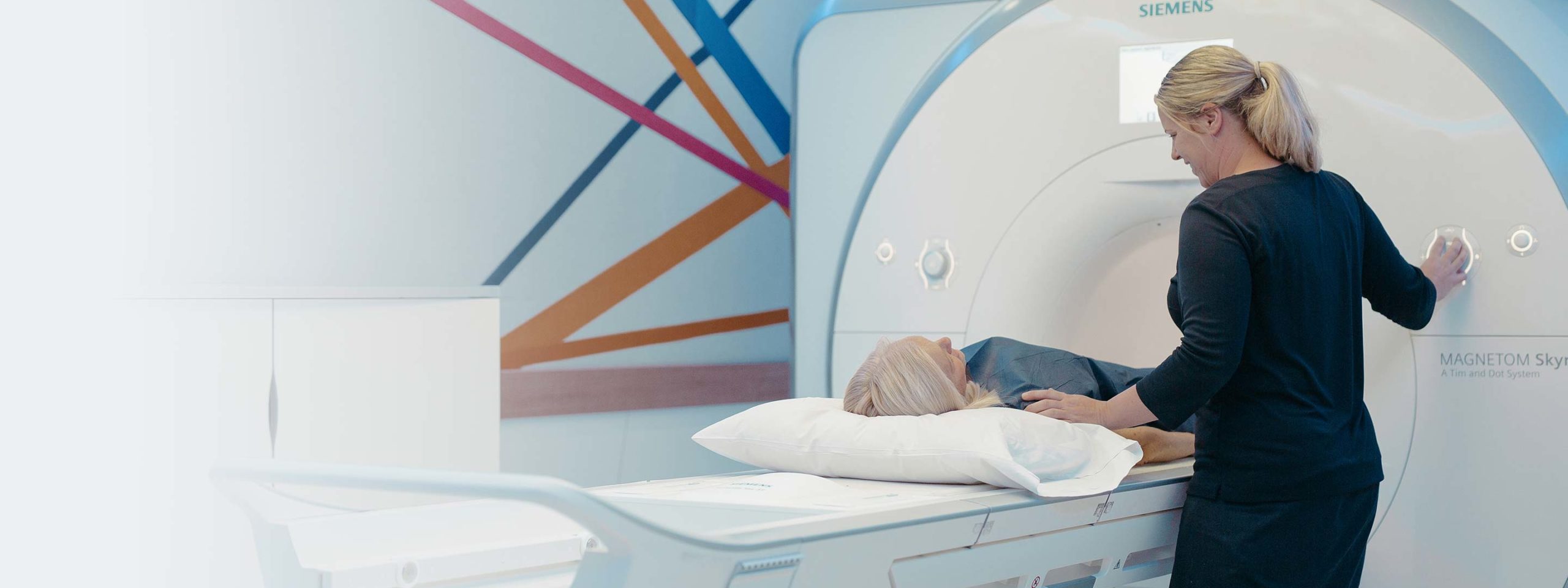Cardiac MRI is a noninvasive procedure that obtains structural and functional images of the heart and surrounding vessels.
When you arrive for your examination, you will be asked to fill out a safety questionnaire.
You will lie in the scanner with a special coil over your chest, which needs to be in the centre of the magnet. Usually, you will go into the magnet head-first.
During the scan, you will need to be as still as possible. If you experience claustrophobia (fear of small places), please discuss this with us before your scan. If sedation (medication to relax you) is required, you will need to arrange for someone to drive you home.
MRI scanners make a loud knocking sound while the images are developed. To reduce the impact of the noise, you will be offered headphones or earplugs. You will also be offered a buzzer to press if you want to talk to the technologist at any time during the scan.
Your heart rate must be monitored throughout the procedure using small electrodes placed on your chest, which are connected to a battery operated monitor.
During the procedure, you will be asked to hold your breath in order to get clearer pictures. Each breath-hold will be approximately 10-15 seconds.
In some cases, an injection of a contrast dye (Gadolinium) is required. If so, the technologist will inform you and explain the process. The contrast dye will be given through a small needle (intravenous cannula) that will be placed in your arm.
Risks / Side Effects
As part of the MRI examination, you may need to have an injection of a contrast agent (dye) known as Gadolinium. This medication is administered intravenously (injection into vein) through a needle. Overall MRI contrast injection is a safe procedure. Occasionally patients feel a little nauseous but this only lasts momentarily. More serious allergic type reactions, although possible, are extremely rare. The staff in the MRI department are fully trained to deal with such a reaction should it occur.
Before your Scan
When making your appointment, you will be told to fast from all stimulants (have no caffeine, nicotine etc,) for 6 hours before to your examination. If you are taking medication for your condition, you can continue to do so.
Because MRI uses large and strong magnets to create images, it is important that jewellery such as watches, chains, earrings and other metallic items such as eye-glasses are removed before the scan. You may also be asked to change into an examination gown for your safety and to make sure your clothing does not affect the images and diagnostic quality of the scan.
Duration
Cardiac MRI takes between 45mins-1hr.
Are you ready to make your MRI (Magnetic Resonance Imaging) appointment?
Our online booking platform allows you to quickly and easily make an appointment online.


